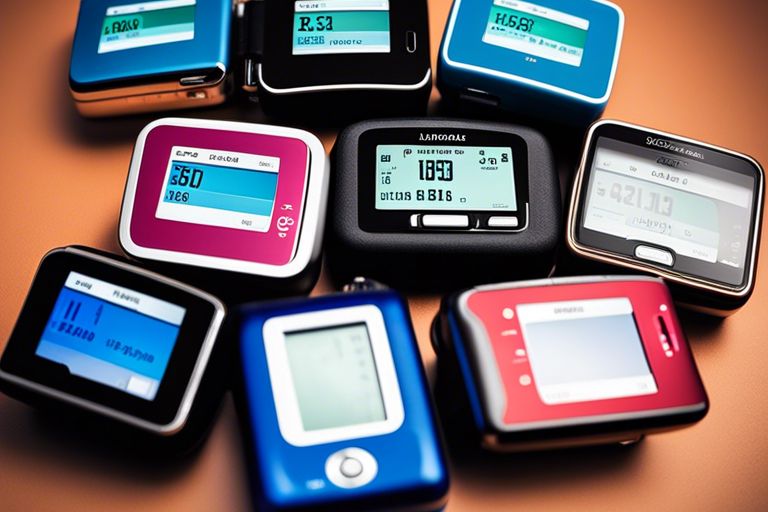Diabetes is a chronic condition that affects millions of people worldwide. There are two main types of diabetes: type 1 and type 2. Type 1 diabetes is less common and typically diagnosed in children and young adults. While the exact cause of type 1 diabetes is unknown, genetics play a significant role. In this article, we will explore the link between diabetes type 1 and genetics and what you need to know about the condition.
Understanding Diabetes Type 1
Type 1 diabetes is an autoimmune disease that occurs when the body’s immune system attacks the cells in the pancreas that produce insulin. Insulin is a hormone that helps regulate blood sugar levels in the body. Without insulin, blood sugar levels can rise to dangerous levels, leading to a host of complications, including nerve damage, blindness, and kidney failure.
Causes of Type 1 Diabetes
The exact cause of type 1 diabetes is unknown, but research suggests that it is a combination of genetic and environmental factors. Some research suggests that viruses or environmental toxins may trigger the onset of type 1 diabetes in people who are genetically predisposed to the condition.
Genetic Factors in Type 1 Diabetes
Genetics play a significant role in the development of type 1 diabetes. Researchers have identified several genes that are associated with an increased risk of developing the condition.
The Role of the HLA Genes in Type 1 Diabetes
The HLA genes, located on chromosome 6, play a crucial role in the development of type 1 diabetes. These genes are responsible for producing proteins that help the immune system distinguish between the body’s own cells and foreign invaders. People with certain variations of the HLA genes are more likely to develop type 1 diabetes than others.
Non-HLA Genes and Type 1 Diabetes
In addition to the HLA genes, researchers have identified several non-HLA genes that are associated with an increased risk of type 1 diabetes. These genes are involved in regulating the immune system and insulin production.
Environmental Factors in Type 1 Diabetes
While genetics play a significant role in the development of type 1 diabetes, environmental factors may also contribute to the onset of the condition. Some research suggests that exposure to certain viruses or environmental toxins may trigger the immune system to attack the pancreas in people who are genetically predisposed to the condition.
Diagnosis and Treatment of Type 1 Diabetes
Diagnosis of type 1 diabetes is typically done through a blood test that measures blood sugar levels. Treatment typically involves insulin therapy to regulate blood sugar levels. Other medications may also be used to manage the condition and prevent complications.
Genetic Testing for Type 1 Diabetes
Genetic testing is available for people who have a family history of type 1 diabetes or who have other risk factors for the condition. Genetic testing can help identify people who are at increased risk of developing type 1 diabetes, allowing for early intervention and treatment.
Managing Diabetes Type 1
Managing type 1 diabetes involves careful monitoring of blood sugar levels and insulin therapy. Lifestyle changes, such as exercise and diet modifications, can also play a significant role in managing the condition.
Lifestyle Changes for Diabetes Type 1
Exercise is an essential part of managing type 1 diabetes. Regular physical activity can help regulate blood sugar levels, improve insulin sensitivity, and prevent complications associated with the condition. A healthy diet is also crucial in managing type 1 diabetes. Eating a balanced diet that includes plenty of fruits, vegetables, lean protein, and whole grains can help regulate blood sugar levels and improve overall health.
Diabetes Type 1 and Pregnancy
Pregnancy can be challenging for women with type 1 diabetes. The hormonal changes that occur during pregnancy can make it more difficult to regulate blood sugar levels, increasing the risk of complications for both the mother and the baby. Women with type 1 diabetes who are planning to become pregnant should work closely with their healthcare provider to manage their condition and ensure a healthy pregnancy.
Diabetes Type 1 Research
Research into the causes and treatment of type 1 diabetes is ongoing. Scientists are working to better understand the genetic and environmental factors that contribute to the condition and to develop new treatments and therapies to manage the condition and prevent complications.
The Future of Diabetes Type 1 Treatment
The future of type 1 diabetes treatment looks promising. Researchers are exploring new therapies, including gene therapy and stem cell therapy, that may provide a cure for the condition. Advances in technology, such as continuous glucose monitoring and insulin pumps, are also making it easier for people with type 1 diabetes to manage their condition.
Conclusion
Type 1 diabetes is a chronic condition that affects millions of people worldwide. While the exact cause of the condition is unknown, genetics play a significant role in its development. Understanding the link between diabetes type 1 and genetics is crucial in managing the condition and preventing complications. With careful monitoring, lifestyle changes, and advances in treatment, people with type 1 diabetes can lead healthy and fulfilling lives.
FAQs
-
Can type 1 diabetes be prevented?
- While there is no known way to prevent type 1 diabetes, maintaining a healthy lifestyle and managing risk factors may help reduce the risk of developing the condition.
-
Is type 1 diabetes genetic?
- Yes, genetics play a significant role in the development of type 1 diabetes.
-
Can type 1 diabetes be cured?
- While there is no known cure for type 1 diabetes, new therapies and technologies are being developed that may provide a cure in the future.
-
What is the difference between type 1 and type 2 diabetes?
- Type 1 diabetes is an autoimmune disease that occurs when the body’s immune system attacks the cells in the pancreas that produce insulin. Type 2 diabetes is a condition in which the body is unable to properly use insulin.
-
Can women with type 1 diabetes have a healthy pregnancy?
- With careful monitoring and management of the condition, women with type 1 diabetes can have a healthy pregnancy. It is important for women with type 1 diabetes to work closely with their healthcare provider during pregnancy.




